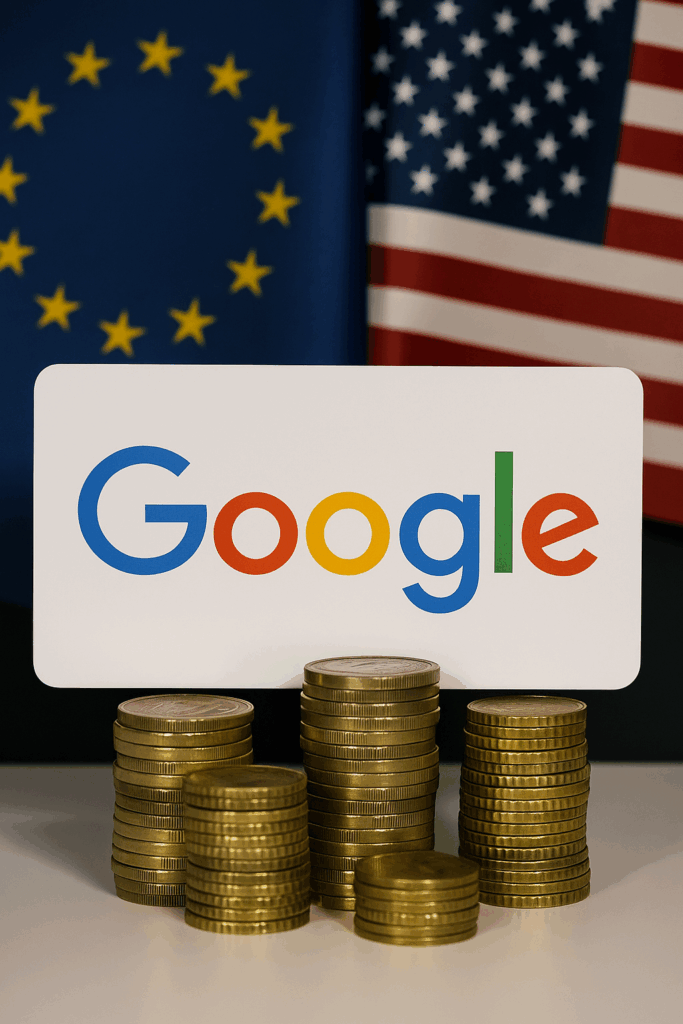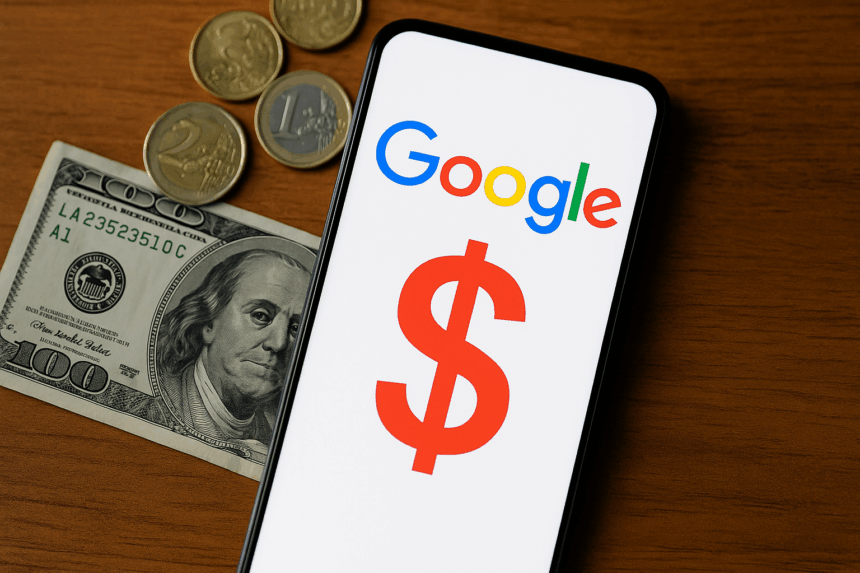Google ended a tough week as regulators, on both sides of the Atlantic, took action against the search leader. The damage: a combined $3.8 billion in fines. The penalties stem from a European Union antitrust ruling and a U.S. class-action privacy lawsuit. Both cases represent the global scrutiny of Google’s data and advertising practices.
What’s Happening & Why This Matters
The European Commission fined Google 2.95 billion euros ($3.45 billion) for anti-competitive practices in its adtech business. Regulators say Google unfairly favored its own advertising technology services over competitors and online publishers. This violated EU competition laws. The investigation revealed that since 2014, Google has been using its dominance to prioritize its services. This left rivals at a disadvantage.
Teresa Ribera, the EU’s antitrust chief, called for transparency and fairness in digital markets:
“Digital markets exist to serve people and must be grounded in trust and fairness. When markets fail, public institutions must act to prevent dominant players from abusing their power.”

Google strongly denied wrongdoing and announced plans to appeal. Lee-Anne Mulholland, Google’s Vice President of Global Regulatory Affairs, stated:
“The European Commission’s decision about our ad tech services is wrong and we will appeal. It imposes an unjustified fine and requires changes that will hurt thousands of European businesses by making it harder for them to make money.”
The EU has given Google 60 days to outline compliance plans. The possibility of stricter actions, including a forced divestiture, looms if the company fails to meet regulatory expectations. The fine follows previous penalties: a record €4.3 billion in 2018, €2.42 billion in 2017, and €1.49 billion in 2019.
Meanwhile, in the United States, a jury ordered Google to pay $425 million in a class-action lawsuit involving data privacy. The case, initiated in 2020, alleged that Google continued collecting users’ search and activity data. This occurred even after they disabled tracking features. The collection reportedly occurred through third-party apps Uber, Venmo, and Instagram. This happened despite users turning off the “Web & App Activity” setting.
The class action covers 98 million users and 174 million devices. Plaintiffs initially sought $31 billion in damages for data collected between 2016 and 2024. While the jury did not award punitive damages — citing no malicious intent — it found Google liable for two out of three privacy violation claims.
Google’s response was swift, defending its practices:
“This decision misunderstands how our products work. Our privacy tools give people control over their data, and when they turn off personalization, we honor that choice.”
Earlier in 2024, Google paid nearly $1.4 billion to settle lawsuits with the state of Texas over biometric data collection. Additionally, it paid $392 million in a separate case involving location tracking.
The back-to-back rulings indicate mounting global pressure on Big Tech companies. They need to reform business practices related to privacy, competition, and market dominance. With Google appealing both cases, the outcomes may establish new tech regulation standards. They may influence data privacy policies internationally.
TF Summary: What’s Next
Google faces challenges on multiple fronts as it battles regulators in Europe and the U.S. The EU’s demand for compliance could reshape how Google operates its ad-tech services, potentially opening opportunities for competitors. In the U.S., the privacy lawsuit serves as a stark reminder of growing consumer concerns over data collection. These cases promote accountability for Big Tech, where transparency and compliance are no longer optional.
— Text-to-Speech (TTS) provided by gspeech


